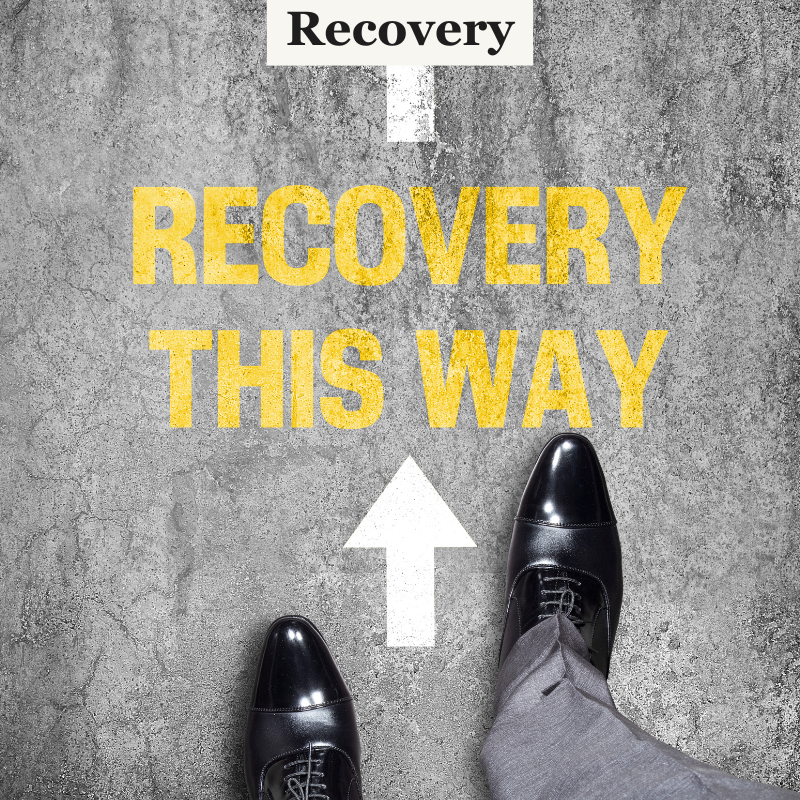Broken Recovery

Burnout. Most think it happens from working too much. It’s actually a side effect from overworking, but the reason behind it stems from under-recovery.
Sometimes, I sit down on the couch for hours. No motivation to complete any of the task on the never-ending list. Feels like I am broken or just plain lazy.
Some people become irritable or feel like their brain muddles through a foggy mess. Lack of motivation does not always mean we need to push or work harder. Your body may send you signals that you need to recover smarter.
Ignoring recovery is like sitting in your car with both feet smashed on the brake and accelerator. The engine revving, guzzling gas, all cylinders full blast straining the system, but you are not going anywhere. You're burning out your engine, draining the fuel and wearing down critical parts stuck in the same place.
While lost energy causes one problem, the decline in your health should be treated as your main issue.
Poor focus, mood swings, disrupted sleep and declining performance are examples list few manifestations of poor recovery. The actual killer is chronic disease, like increase heart disease, insulin resistance, depression and increased mortality from chronic stress overload.
Stress increases with incomplete recovery.
In the book peak performance, the authors Brad Stulberg and Steve Magness write an interesting story about Kikkan Randall, an Olympic cross-country skier. Kikkan’s work ethic and drive pushed her daily limits beyond those of normal folks. Unfortunately, despite her relentless efforts, she hit a plateau. Her performance just hit a standstill and profound unexplained fatigue snuck into her life.
She thought the solution was to train harder. But it only made progress more difficult. She sought answers to her profound fatigue and lack of progress with the help of the world's top sports science professionals. They recommended incorporating structured recovery into her training. It was not about resting more, but better recovery.
She not only incorporated planned rest days into her schedule, but developed a detailed protocol for improving her quality of sleep, treating it as part of her training. She also implemented mindfulness and mental recovery techniques to manage stress.
Kikkan won a gold medal at the 2018 Olympic games. A story of significant importance because it points out how recovery is the water needed for the seeds of growth and progress. People lack intention and systems for an active recovery process. We need a strategy.
Fixing broken recovery
1. Physical Recovery:
- Quality Sleep: Over 35% of adults in the U.S. get less than 7 hours of sleep per night, increasing the risk of obesity, diabetes, and heart disease. Sleep restores cognitive function, regulates hormones, and enhances physical recovery. Aim for 7-9 hours of sleep per night. Establish a consistent bedtime routine.
- Active Rest: Sedentary lifestyles contribute to over 3 million preventable deaths annually worldwide. Light activities like walking improve circulation, aid muscle repair, and reduce inflammation. Incorporate 20-30 minutes of light physical activity daily, such as walking, gentle yoga, or stretching.
- Proper Nutrition: More than 90% of Americans don’t get enough essential nutrients from their diet. Balanced nutrition supports muscle repair, boosts immune function, and regulates metabolism. Focus on whole, nutrient-dense foods. Prioritize protein and healthy fats.
2. Mental Recovery:
- Downtime Minus Screens: The average person spends over 7 hours daily on screens, leading to digital fatigue and poor sleep quality. Reducing screen time lowers stress and improves mental clarity. Fix: Schedule regular screen-free breaks throughout the day. Try activities like reading, journaling, or simply sitting quietly to reset your mind
- Mindfulness: Regular mindfulness practice reduces anxiety by up to 58% and improves focus and emotional regulation. Just 10 minutes a day can rewire stress responses.
- Nature Exposure: People who spend at least 2 hours a week in nature report significantly higher well-being. Nature reduces cortisol levels and enhances mood and cognitive function. Prioritize meaningful interactions. Schedule regular meet-ups with friends, family, or join community groups that foster connection.
3. Emotional Recovery:
- Social Connection: Loneliness increases the risk of premature death by 26%, comparable to smoking 15 cigarettes a day. Strong social ties improve mental health and resilience.
- Hobbies: Engaging in hobbies reduces the risk of depression by up to 30% and fosters a sense of accomplishment and joy.
- Purpose-Driven Activities: A strong sense of purpose is linked to a 23% reduction in mortality risk. Purpose fuels motivation, emotional stability, and long-term well-being.
Recovering won't set you back, contrary to what people think. It brings you up to speed. You're not broken or stuck, just need time to heal.